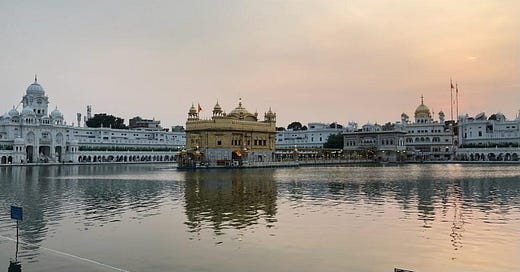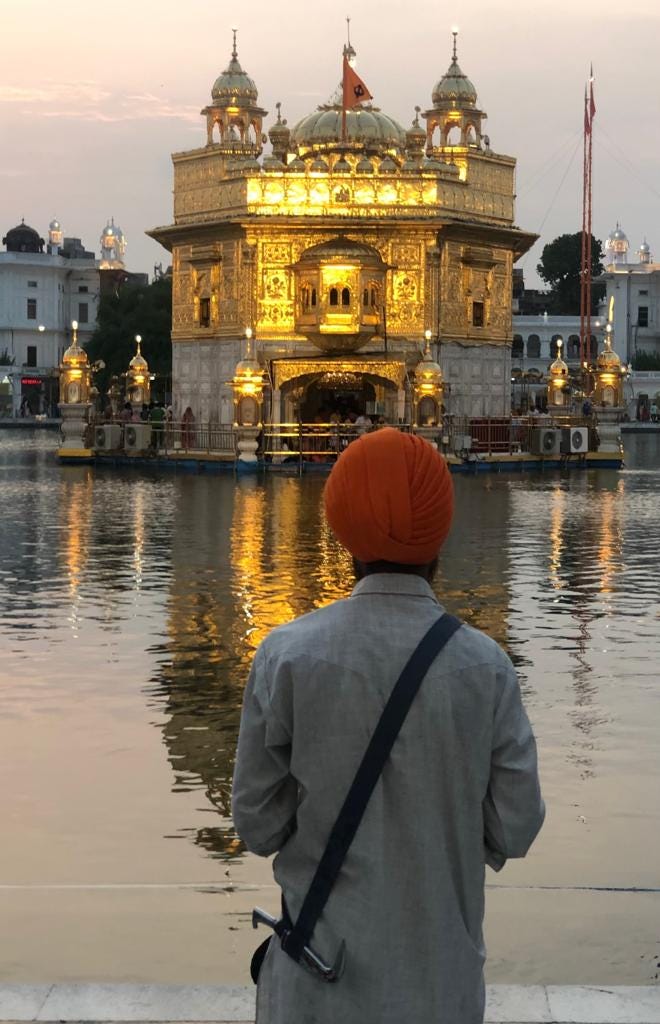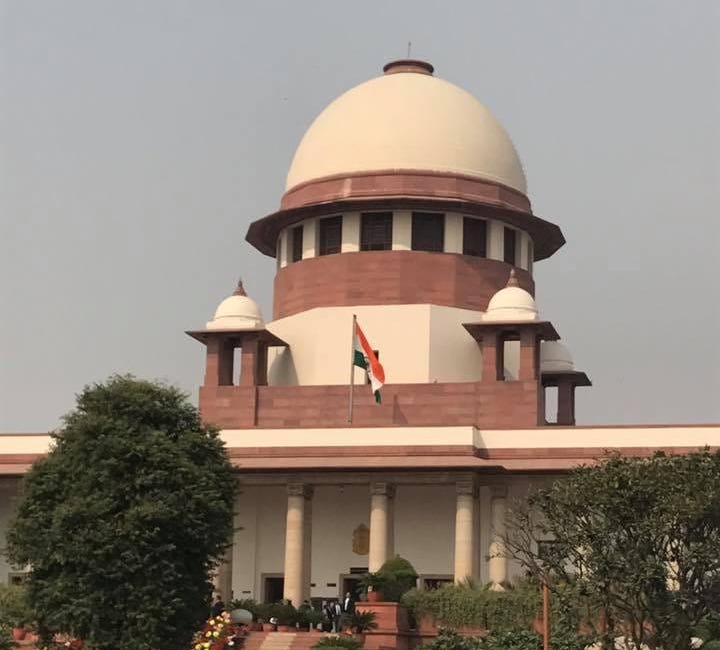Sehajdhari Sikhs's Voting Rights in SGPC: Punjab and Haryana High Court Issues Notice
In an application moved by the petitioner, Sehajdhari Sikh Party, the Court issued notice to the Union of India, State of Punjab and SGPC.
Renewed Legal Challenge Over Sehajdhari Sikh Voting Rights
The contentious issue of voting rights for Sehajdhari Sikhs in the upcoming the Sikh Gurdwara Parbandhak Committee (SGPC) elections has once again come to the forefront. A Division Bench of the Punjab and Haryana High Court, presided over by Acting Chief Justice G. S. Sandhawalia, on April 2, issued a notice to the Union of India and other respondents in respect of a fresh stay application submitted by the petitioner Sehajdhari Sikh Party, as part of their Civil Writ Petition No. 11978 of 2017, which is currently pending before the Court.
Historical Context of the Legal Petition
This writ petition was filed in the year 2017 by the Sehajdhari Sikh Party, officially registered with the Election Commission of India, immediately following the 2016 parliamentary amendment to the Sikh Gurdwaras Act, 1925. This retrospective amendment operated to revoke the voting rights of Sehajdhari Sikhs in SGPC elections, prompting the legal challenge in 2017.
Court Proceedings and Future Directions
The Division Bench, in this order dated 2nd April 2024, adjourned the hearing to 16th May 2024, instructing the respondents to submit their response to the application filed by the petitioner political party. The petitioner had prayed that the SGPC election process be either stayed or that any conducted elections be considered provisional, and subject to the final decision on their writ petition.
Contesting Disenfranchisement and Legal Victories
In an exclusive interview with “The KBS Chronicle,” Dr Paramjit Singh Ranu, the National President of the Sehajdhari Sikh Party highlighted a prior attempt to disenfranchise approximately 70 lakh Sehajdhari Sikhs through an executive notification by the Government of India. This move was later overturned by a full-Bench of the Punjab and Haryana High Court, which found the notifications unconstitutional insofar as they operated to effectively amend the Sikh Gurdwaras Act, 1925, without the due legislative process. Dr. Ranu alleged that the Akali leadership, under the late Sardar Prakash Singh Badal, had misled the Narendra Modi-led NDA government, of which the Akali Dal was a part, to retrospectively amend the Act through Parliament in 2016, counteracting the Court's earlier decision.
Challenging the Amendment's Constitutionality
Dr. Paramjit Singh Ranu described the retrospective amendment as unconstitutional and void, noting that the response filed by the Punjab Government, a respondent in the instant case, under the leadership of Captain Amarinder Singh, appeared to be supportive of their position.
The Rights and Status of Sehajdhari Sikhs
Dr. Ranu asserted that Sehajdhari Sikhs have been exercising their voting rights for more than forty years, fully aligning with the definition of "Sikhs" as per the Sikh Gurdwaras Act, 1925. He highlighted that Sehajdhari Sikhs possess additional qualifications compared to ordinary Sikhs, yet the controversial parliamentary amendment, influenced by the Badal leadership, unjustly stripped them of these long-valued rights.
Impact on SGPC Representation
The retrospective amendment not only faced criticism for its constitutional validity but also transformed the SGPC, widely considered the mini Parliament of Sikhs globally, into a body perceived as non-representative. Following a decade, the re-registration process for SGPC voters resulted in a significant reduction, with only 20 lakh voters registered compared to the earlier 50 lakh, highlighting the diminishing inclusivity within this pivotal institution.
Anticipation of Supportive Judgement and Political Backing
The National President expressed optimism that the Punjab and Haryana High Court would resolve the matter swiftly. Furthermore, there is hope that the AAP Government's stance in Punjab will be decidedly in favour of their writ petition upon submitting their official response, indicating potential political support for their cause.
Political Strategy and Future Directions
Regarding the Sehajdhari Sikh Party's position in the upcoming Lok Sabha elections, Dr. Paramjit Singh Ranu stated, “We will not support Shiromani Akali Dal, as long as we remain deprived of our voting rights in the SGPC.” He revealed plans for a significant press conference at the Jalandhar Press Club on Friday, April 5, where they will unveil their further course of action, including the potential for aligning with the National Democratic Alliance (NDA).
Shifting Political Alliances and Emerging Dynamics
With the potential alliance between Shiromani Akali Dal and BJP in Punjab for the 2024 Lok Sabha election now officially ruled out, the political landscape, especially within Sikh politics, is poised for significant changes. The emergence of the Sehajdhari Sikh Party, against the backdrop of the upcoming hearing in the Punjab and Haryana High Court scheduled for 16th May 2024, signals a time of political realignment and possibly the birth of new alignments or movements within the region's politics. The onus is especially on the Sikh youth whether they would like to be part of, nay lead, what is being widely perceived to be the “Second Gurdwara Reform Movement”, exactly a century after the first one during the colonial British Rule.
Stay tuned1. Refer footnote2 for Haryana SGPC.
Sahjdhari Sikhs: Leadership's Role in getting them back into the mainstream
Sahjdhari Sikhs: A Renewed Vision for Sikh Leadership Sikhism, a faith both profound and vibrant, has significantly enriched the spiritual and cultural tapestry of India. It stands as a beacon of inclusivity, equality, and brotherhood, principles that are deeply embedded in the teachings of the ten revered Sikh Gurus. These values have not only shaped th…
Did the Supreme Court err in the SGPC-Haryana Case?
Supreme Court’s Verdict: The verdict of 20th September, 2022 pronounced by the Supreme Court of India[1], upholding the constitutional validity of the Haryana Sikh Gurdwaras (Management) Act, 2014[2], in our opinion, is not only erroneous and unconstitutionally incorrect but also significantly undermines the unpa…










